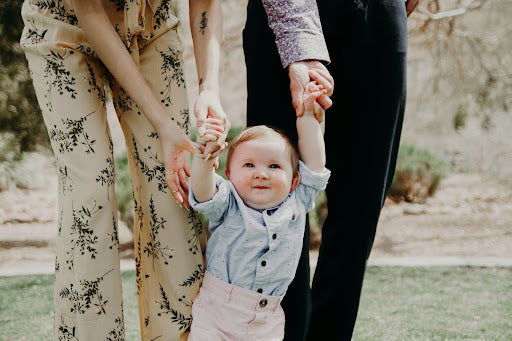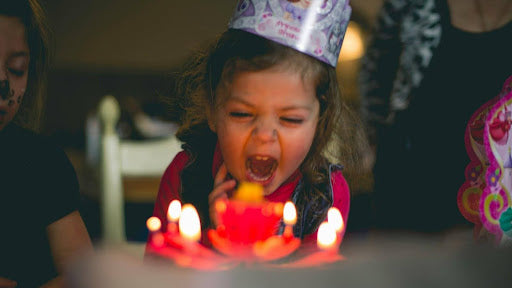A journey of parenthood is filled with surprises and lessons. All parents attempt to provide an environment where their children learn, grow as well feel secure while staying connected with the rest of the world. All parents have their own parenting styles and plans for their children, and they try to give them the best. However, if their child shows unique or unexpected behaviour, parents may feel annoyed and question their parenting abilities. Here, positive parenting tips can be useful.
What is Positive Parenting
Positive parenting or effective parenting is like a guiding hand that helps guide a toddler in knowing the real world. It is not a matter of time, rather, it is about developing trusting and respectful connections. Consider a connection in which you communicate openly with your child and value their views and feelings just as much as your own. Yes, that’s heart-worthy positive parenting.
Positive parenting is much more than simply being too soft or too harsh, but rather about guiding children to understand why those limits have been established and how to navigate the world under these limitations. Better parenting skills also include active listening, valuing your child's individuality, and encouraging collaborative endeavours.
Why Positive Parenting
Positive parenting aims to evaluate a child's growth via encouragement, communication, and positive reinforcement. It promotes strong parent-child relationships based on trust and understanding. Positive parenting also seeks to improve the emotional well-being, self-esteem, and social skills of children by providing a supportive atmosphere. This method promotes constructive discipline over punishment, allowing children to learn from their own mistakes and gain important life experiences. Moreover, better parenting skills aim to develop confident, resilient, and emotionally strong children.
Positive Parenting Tips or Strategies For Your Child
Discover 10 effective positive parenting tips or techniques to enhance your child's development and strengthen your parent-child bond.
1. Set Clear and Consistent Boundaries
Create clear instructions and expectations for your child's behaviour. It is one of the best positive parenting techniques that will teach children what is acceptable and what is not. To encourage accountability and respect, implement rules in a strict but appropriate manner.
2. Encourage Open Communication
Create an effective parenting environment where your child doesn't feel hesitation while expressing their thoughts and feelings. Listen to their concerns actively and validate their emotions. This positive parenting technique builds trust and strengthens the parent-child bond.
3. Model Positive Behavior
As your children learn from what they see, act in what behaviour you want them to adopt. Be kind, patient, and respectful in your interactions with others, particularly with your child. our actions speak louder than words and are an effective teaching tool.
4. Focus on Solutions Rather than Blame
Avoid panicking and stay calm when some conflicts appear; try to work out on solution together instead of blaming. Ask your child to develop ideas on what might be some reasonable solutions and relate the consequences of each. This positive parenting tip encourages children to accept responsibility for their actions and work towards a solution.
5. Promote Independence
Let your child make age-appropriate choices. You may encourage children to dress themselves, help with housework, and make their own small decisions about what to eat and where to go. Better parenting techniques increase children's confidence and self-esteem while also making them feel like they are important members of the family.
6. Practice Positive Discipline
Maintaining discipline should be positive, not punitive. Use logical implications that have a clear connection to your child's activities to teach them important lessons. For example, if they cause a mess, include them in cleaning it up so they understand the repercussions of their actions.
7. Spending Quality Time Together
Positive parenting techniques, such as spending time with your child, can help you form a deep relationship with them. You may play games, go on walks, or cook together, these activities not only build your relationship but also provide lasting memories.
8. Promote Emotional Stability
Help your kid how to manage their emotions effectively. Encourage them to communicate their feelings and provide coping strategies like deep breathing or taking a break.
9. Versatility and Adaptability
Before implementing any type of positive discipline, you must first understand that each child is unique and different. Support them in their numerous desires and activities, and don't compare them to other children since this can undermine their confidence.
10. Provide Choices within Limits
Giving children age-appropriate options empowers and helps them develop decision-making skills. Set clear limits to ensure that your decisions align with your family's values.
Conclusion
As you manage the lovely chaos of parenthood, remember that the essence of positive parenting is found in genuine moments, sharing laughter, and constant support. Keep it basic and authentic. Go ahead and improve your parenting experience with these easy yet powerful positive parenting techniques, just like Mama and Peaches adorn babies in the finest threads and surroundings. After all, parenting is an art form that, when infused with optimism, transforms into a masterpiece. Mama & Peaches understand the art of crafting moments, just as you do. They offer nursery decor, baby products, baby clothes and many more things that you can create a warm, loving atmosphere where your children can blossom and thrive.
FAQs
1. What is positive parenting called?
Positive parenting is often described as a supportive and encouraging way to raise children, including communication and fostering positive energy for their well-being and development
2. Is positive parenting beneficial for all age groups?
Yes, positive parenting benefits children of all ages because it encourages healthy communication and emotional growth and deepens the parent-child connection.



